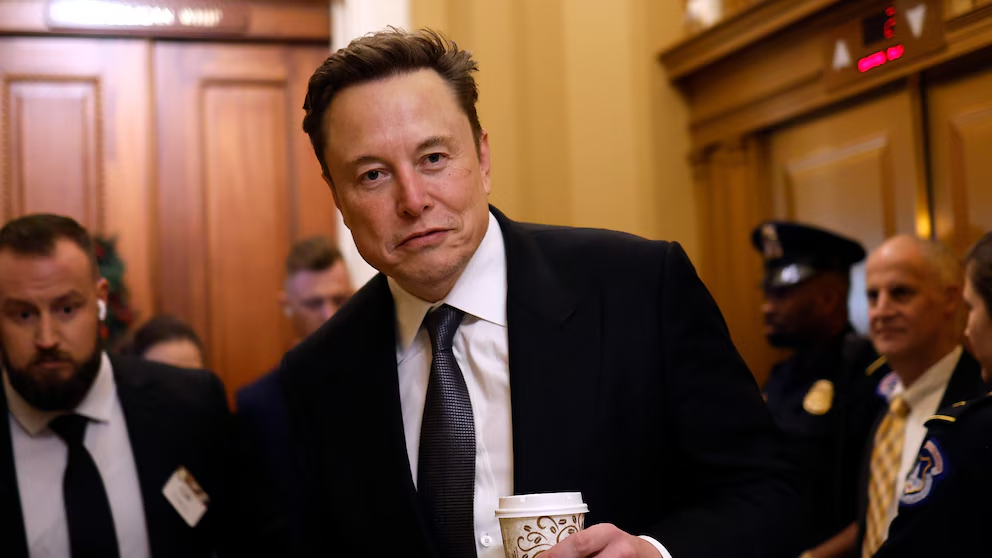By Siddhi Vinayak Misra
Copyright breezyscroll

What happened in the new Epstein files release?
A fresh batch of documents linked to Jeffrey Epstein has put Tesla and SpaceX CEO Elon Musk’s name alongside other influential figures such as Bill Gates, Prince Andrew, and former Trump adviser Steve Bannon.
The six-page document, released by Democratic lawmakers, included an itinerary dated December 6, 2014, suggesting a potential trip by Musk to Epstein’s island in the US Virgin Islands, the place where multiple women have alleged abuse took place. Next to Musk’s name on the schedule, a note asked: “Is this still happening?” The files, however, did not confirm whether Musk actually made the trip.
The same documents listed other high-profile meetings, including a planned breakfast with Bill Gates in December 2014 and a confirmed breakfast with Steve Bannon in February 2019.
How did Elon Musk respond?
Musk wasted no time rejecting the implication. In a post on X (formerly Twitter), he stated bluntly:
“This is false.”
The billionaire has previously distanced himself from Epstein. Musk insists he had no association with the disgraced financier beyond occasional encounters at social gatherings. His latest denial is consistent with earlier remarks that he “never went to his island.”
Why are Democrats pushing for a full release of Epstein’s files?
Democratic lawmakers are using the latest release to intensify calls for transparency. They argue the Department of Justice (DOJ) must make all Epstein-related files public, rather than selective disclosures.
Their position is rooted in long-standing suspicions that Epstein’s connections, spanning politics, finance, and technology, were leveraged to gain influence or protection. Critics believe the absence of a comprehensive release fuels conspiracy theories about a so-called “client list.”
In contrast, President Donald Trump’s administration has repeatedly denied the existence of such a list, saying there was no evidence Epstein blackmailed elite figures. This contradiction keeps the debate alive.
What role does Elon Musk play in the broader Epstein debate?
Musk’s involvement in the Epstein conversation goes beyond his name appearing in the files. He has been one of the most vocal high-profile figures demanding transparency.
Past comments about Trump: Musk has clashed with Trump over the secrecy around Epstein. In a now-deleted post, Musk suggested Trump himself was protecting sensitive information because his name allegedly appeared in the files. Musk later admitted he “went too far” with that claim.
Criticism of DOJ secrecy: After stepping down from his role in the Department of Justice (DOJ) amid a feud with Trump, Musk repeatedly pressed the administration to honor promises of full disclosure. In one post, he asked if there were “electronic records in government or commercial computers” that could confirm Epstein’s flight logs.
Public pressure campaign: Musk has framed the DOJ’s reluctance as a cover-up, urging that “just releasing the files” would end speculation.
Why does this matter?
The significance of Musk’s name appearing in the Epstein files is twofold:
Public perception and reputational risk: Even without proof of wrongdoing, any mention of Epstein fuels speculation. For Musk, already a polarizing figure, this could amplify scrutiny.
Political implications: Musk’s feud with Trump and alignment with Democrats on transparency have introduced an unusual twist. The Tesla CEO, who is often critical of government regulation, now finds himself aligned with lawmakers calling for government transparency.
The broader issue, however, is about accountability and trust in institutions. Without full transparency, suspicions will persist, affecting not only Musk but also other leaders named in the documents.
What’s next in the Epstein files saga?
The DOJ faces renewed pressure to disclose all records connected to Epstein. Key questions remain unanswered:
Did high-profile figures named in the files ever travel to Epstein’s properties or engage with him beyond business or social settings?
Why does the DOJ continue to withhold full documentation, despite repeated public and political calls?
How will the revelations influence ongoing conspiracy theories and public distrust?
Unless the Justice Department provides a comprehensive release, speculation will continue to dominate headlines, keeping Musk and others in the spotlight.
Elon Musk’s name appeared in newly released Epstein files referencing a tentative trip to Epstein’s island in 2014.
Musk has strongly denied the claim, calling it “false.”
Democrats are demanding the DOJ release all Epstein files, while Trump’s administration denies the existence of a “client list.”
Musk has publicly pressured Trump to disclose records, framing the issue as one of transparency.
The documents revive questions about accountability, institutional trust, and the extent of Epstein’s influence.



